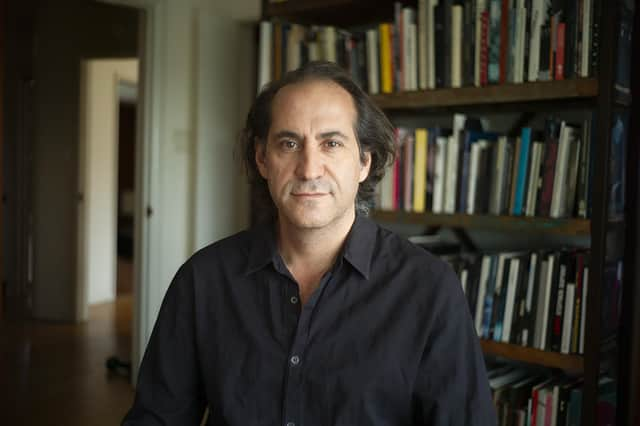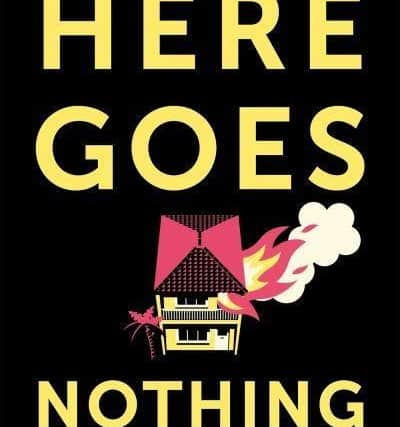Book review: Here Goes Nothing, by Steve Toltz


Steve Toltz is the greatest Mitteleuropean novelist ever to have come from Australia. To read his work – the 2008 Booker shortlisted A Fraction of the Whole, then Quicksand and now Here Goes Nothing – is to hear a clamour of avant-garde influences. He can be, by turns, as misanthropic as EM Cioran, as melancholy as Bruno Schulz, as weird as Danilo Kis, as plangently absurd as Bohumil Hrabal and as riotously depressed as Thomas Berhardt. Yet, he remains distinctly Australian despite the panoply of predecessors. The experience of reading his works is like being relentlessly sledged by a Shane Warne with an interest in metaphysics and the paradoxes of ethics. I was, as you might imagine, sorely disappointed when he lost out on the Booker Prize to Aravind Adiga in 2008, but then the Booker traditionally has not been comfortable with comedy (though this is changing with writers like George Saunders and Paul Beatty winning recently).
What connects Toltz’s three novels, over a deliriously manic, barely suppressed hysteria, is that they all feature losers. In A Fraction of the Whole it was not just the put upon Jasper, but his megalomaniac, antagonistic father Martin, whose sole aim in life was to contradict everyone and be remembered after his death. Likewise, Quicksand has the wheelchair using Aldo, a man of perpetual misfortunes and boundless if useless entrepreneurial schemes, and his friend Liam, a failed novelist turned cop whose friendship is partly genuine and partly parasitic (since Aldo’s tales of woe are top quality material for an unscrupulous writer). Joining them now is Angus Mooney. Like his forebears he is self-deluded, foul-mouthed and objectionable and yet Toltz’s great skill is to make these monsters in a lunatic way loveable. I was reminded of a different kind of author entirely – GK Chesteron, who in one of his essays wrote, “the Buddhist saint always has his eyes shut, while the Christian saint always has them very wide open. The Buddhist saint has a sleek and harmonious body, but his eyes are heavy and sealed with sleep. The mediaeval saint’s body is wasted to its crazy bones, but his eyes are frightfully alive”.
Advertisement
Hide AdAngus sets out his philosophy early on and would not perhaps relish comparison to a mediaeval saint. “To me, heaven was a childish dream, purgatory an obvious metaphor, hell credible only on earth and the very notion of an immortal soul was only a way to avoid facing our imminent trip to Nowhere”. Then the zinger. “It’s humiliating how wrong you can be”. Angus, having grown up in a series of foster homes, is now in a relationship with Gracie and is on the straighter and narrower after plenty of juvenile delinquency. His job is taking the videos of the weddings where Gracie is the celebrant, and her style is, shall we say, unique. Her selling proposition seems to be her candid, in-your-face, stripping of illusions; and judging by her online success and bookings, people can’t get enough of it. A typical example is “Marriage is not without its difficulties, right? Holy sh*t, it’s complex. If you want privacy you’ve come to the wrong institution. Your life together will be defined by accidents, arguments, unexpected windfalls and poor decisions. I promise you. This wedding will be the least pivotal moment in your whole marriage… think of a wedding like a tetanus shot. Later, when the wound is infected, you’ll discover that the immunisation was only good for five years”. Before the end of the novel we get Gracie-style funerals and baptisms as well.


So the two cynics fall surprisingly in love. Four major things happen. Gracie becomes pregnant; a terminally ill man called Owen, who is equally snarky, moves in with them as he claims it was his childhood home and he wants to die there; a virus engulfs the world (spread by canines, it is called the Good Boy virus or the K-9 virus) and Angus manages to get murdered. Much to his dismay there is an afterlife. His tattoos have disappeared, he is raised incorruptible and learns quickly that this place is “understaffed and overburdened”. There are rules to this hereafter unlike any other vision of the beyond. Firstly, there is induction training. Secondly, you have to work. And finally, you can die there, but where you go thereafter is a bit of a mystery. Angus manages to muck up most of this through his chronic uncuriosity. Eventually he is told “ ‘Until we find the right position for you, I’m going to start you off making umbrellas’. ‘Umbrellas? You’re sh*tting me.’ I felt like this was a punchline to an easy joke, and I didn’t get it”.
The novel is not just pure conceit on which to drape its snarls, asides, put-downs and helter-skelter shenanigans. It seems Owen may have a thing for Gracie (as the spectral Angus learns). And who murdered him anyway? What will become of his unborn child in a plague-ravaged world? These are all very cleverly linked together and I feel not a shred of embarrassment to say I read the final pages through a veil of tears. Of course, the flipside to such remorseless, brilliantly withering contempt is sentimentality. It is perhaps the most difficult genre to do well, and Toltz does it humanely, compassionately and unforgettably.
Here Goes Nothing, by Steve Toltz, Sceptre, £18.99